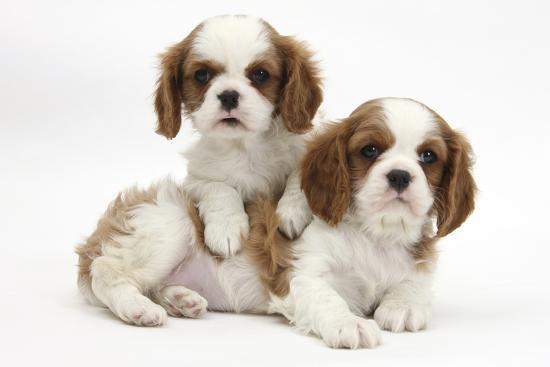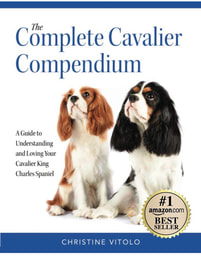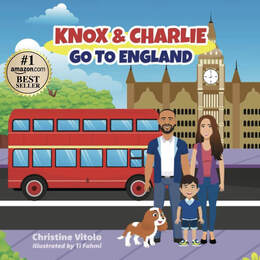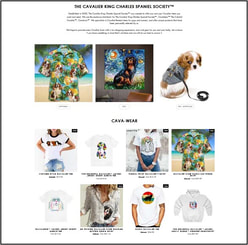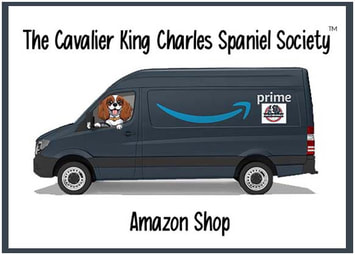NO PUBLIC EXPOSURE UNTIL ALL SHOTS ARE DONE
No Petco, dog parks or walks down the road.
NO exposure to dogs or fecal matter from dogs that you do not know the shot history on.
VET VISITS ARE NEEDED
Make an appointment with your vet shortly after placement.
Be sure to bring a copy of your contract which includes all of your puppy's pertinent information
THEY NEED TO EAT 3 TIMES PER DAY
New puppies will often get into their new home and be overwhelmed by the new people, house and things. Please remember that you need to ensure they are eating on schedule or there can be unfortunate consequences including hypoglycemia. If they are still distracted, then you need to limit options. Take your puppy over to the crate and put the food and water in with them and walk away. If that doesn't work then call your breeder for additional tips. I usually suggest adding a bit of chicken for a few days.
THEY NEED TO BE DRINKING THROUGHOUT THE DAY
Ensure that they are drinking throughout the day to stay hydrated. You can also use the crate to limit options as need with this too.
CONSISTENCY IS CRITICAL
Make sure you are consistent with your feeding, walking and training. No exceptions!
BATHE/GROOM YOUR PUPPY EVERY 4 to 6 WEEKS, OR AS NEEDED
Please refer to the GROOMING page of our site for more details.
No Petco, dog parks or walks down the road.
NO exposure to dogs or fecal matter from dogs that you do not know the shot history on.
VET VISITS ARE NEEDED
Make an appointment with your vet shortly after placement.
Be sure to bring a copy of your contract which includes all of your puppy's pertinent information
THEY NEED TO EAT 3 TIMES PER DAY
New puppies will often get into their new home and be overwhelmed by the new people, house and things. Please remember that you need to ensure they are eating on schedule or there can be unfortunate consequences including hypoglycemia. If they are still distracted, then you need to limit options. Take your puppy over to the crate and put the food and water in with them and walk away. If that doesn't work then call your breeder for additional tips. I usually suggest adding a bit of chicken for a few days.
THEY NEED TO BE DRINKING THROUGHOUT THE DAY
Ensure that they are drinking throughout the day to stay hydrated. You can also use the crate to limit options as need with this too.
CONSISTENCY IS CRITICAL
Make sure you are consistent with your feeding, walking and training. No exceptions!
BATHE/GROOM YOUR PUPPY EVERY 4 to 6 WEEKS, OR AS NEEDED
Please refer to the GROOMING page of our site for more details.
THE INITIAL DAYS AND BEYOND
Once you bring your new puppy home, it's essential to give them time to explore and adapt to their new surroundings. Gradually introduce them to other pets, ensuring your existing pet still feels like the top dog. Avoid having too many people visit during the first few days, as your puppy is like a baby and needs a gentle transition into their new environment before being exposed to larger groups or public settings.
Start integrating the puppy into your daily routine right away. Plan their meals at specific times, evenly spaced throughout the day. For instance, if you typically wake up at 6 am, schedule feedings at 6 am, 12 pm, and 6 pm. Avoid feeding your puppy after 8 pm to minimize the chances of accidents. Adjust your schedule as needed to accommodate these three feedings.
Begin house training immediately. Typically, take your puppy outside first thing in the morning, right before bedtime, and every three hours during the day. Also, take them out for a short walk about 15 minutes after they eat or drink. If you rise at 6 am, take your puppy out, bring them inside for food and water, and then take them out again. Continue this three hour schedule until lunch and dinner, with one more outing before bedtime.
If you're paper training, consider keeping your puppy in a spacious, unobstructed pen. Place bedding at the back and leave paper near the front. In the morning, collect the soiled paper, and take it and the puppy outside. Position the paper in the yard where you want them to relieve themselves and give the command "do your business." This helps them associate the outdoor space with the proper place to go. After they finish, bring the paper inside and dispose of it.
Remember to offer lots of praise when your puppy behaves as you'd like and gently but firmly correct them when they don't. Cavaliers are intelligent and eager to please, so positive reinforcement is very effective. They are sensitive dogs and do not respond well to scolding, so it's important to guide them in the right direction.
Maintain a consistent diet for your puppy, as Cavaliers often have sensitive stomachs and can experience digestive issues with sudden changes in food. If you need to switch their food, do so gradually by mixing the old and new food over about a week. In case your puppy is hesitant to eat during the first days, limit their options and give them space. If that doesn't work, you can mix in small amounts of rotisserie chicken, reducing the amount gradually until they return to their regular dog food.
When it comes to training, be firm and consistent. Puppies, like children, test boundaries and may try to establish dominance in your household. Establish yourself as the leader early on. If you struggle with setting boundaries or have concerns about training, consider hiring a professional trainer for guidance.
TO GET ADDITIONAL INFORMATION ON SUPPLIES AND CARE FOR YOUR PUPPY:
Please refer to the SUPPLIES AND CARE PAGE for more details.
Hopefully these will be some helpful tips to get things started. Feel free to call or email with any other questions!
Once you bring your new puppy home, it's essential to give them time to explore and adapt to their new surroundings. Gradually introduce them to other pets, ensuring your existing pet still feels like the top dog. Avoid having too many people visit during the first few days, as your puppy is like a baby and needs a gentle transition into their new environment before being exposed to larger groups or public settings.
Start integrating the puppy into your daily routine right away. Plan their meals at specific times, evenly spaced throughout the day. For instance, if you typically wake up at 6 am, schedule feedings at 6 am, 12 pm, and 6 pm. Avoid feeding your puppy after 8 pm to minimize the chances of accidents. Adjust your schedule as needed to accommodate these three feedings.
Begin house training immediately. Typically, take your puppy outside first thing in the morning, right before bedtime, and every three hours during the day. Also, take them out for a short walk about 15 minutes after they eat or drink. If you rise at 6 am, take your puppy out, bring them inside for food and water, and then take them out again. Continue this three hour schedule until lunch and dinner, with one more outing before bedtime.
If you're paper training, consider keeping your puppy in a spacious, unobstructed pen. Place bedding at the back and leave paper near the front. In the morning, collect the soiled paper, and take it and the puppy outside. Position the paper in the yard where you want them to relieve themselves and give the command "do your business." This helps them associate the outdoor space with the proper place to go. After they finish, bring the paper inside and dispose of it.
Remember to offer lots of praise when your puppy behaves as you'd like and gently but firmly correct them when they don't. Cavaliers are intelligent and eager to please, so positive reinforcement is very effective. They are sensitive dogs and do not respond well to scolding, so it's important to guide them in the right direction.
Maintain a consistent diet for your puppy, as Cavaliers often have sensitive stomachs and can experience digestive issues with sudden changes in food. If you need to switch their food, do so gradually by mixing the old and new food over about a week. In case your puppy is hesitant to eat during the first days, limit their options and give them space. If that doesn't work, you can mix in small amounts of rotisserie chicken, reducing the amount gradually until they return to their regular dog food.
When it comes to training, be firm and consistent. Puppies, like children, test boundaries and may try to establish dominance in your household. Establish yourself as the leader early on. If you struggle with setting boundaries or have concerns about training, consider hiring a professional trainer for guidance.
TO GET ADDITIONAL INFORMATION ON SUPPLIES AND CARE FOR YOUR PUPPY:
Please refer to the SUPPLIES AND CARE PAGE for more details.
Hopefully these will be some helpful tips to get things started. Feel free to call or email with any other questions!
Our books are available for purchase on Amazon and Barnes and Noble.
Click a photo below to view or purchase
Click a photo below to view or purchase
OUR STORES
We offer two storefronts with products we use, recommend or just love. Every item within our stores is an expression of our devotion to the breed and commitment to our valued clients. Informed by our personal experiences and expertise, we have curated a collection of products just for fun, while others align with our established practices. From beautiful bedding to fun accessories and health conscious grooming essentials, each product bears the imprint of our love for all things Cavalier. Feel free to explore our stores and shop to your heart's content, or to use as a guide and glean valuable insights to everything you'll need for your new puppy.
We offer two storefronts with products we use, recommend or just love. Every item within our stores is an expression of our devotion to the breed and commitment to our valued clients. Informed by our personal experiences and expertise, we have curated a collection of products just for fun, while others align with our established practices. From beautiful bedding to fun accessories and health conscious grooming essentials, each product bears the imprint of our love for all things Cavalier. Feel free to explore our stores and shop to your heart's content, or to use as a guide and glean valuable insights to everything you'll need for your new puppy.
The CavaGear TM Store
A Cavalier themed store with fun items for you and your baby.
Cavalier Couture TM will soon be joining CavaGear TM, offering custom made clothing for your Cavalier.
A Cavalier themed store with fun items for you and your baby.
Cavalier Couture TM will soon be joining CavaGear TM, offering custom made clothing for your Cavalier.
Our Amazon Storefront
This store links you directly to Amazon sellers who offer the products that we use and recommend.
This store links you directly to Amazon sellers who offer the products that we use and recommend.
The Joys of Owning a Cavalier King Charles Spaniel Puppy
Cavalier King Charles Spaniels are known for their charming personalities, gentle dispositions, and affectionate natures. If you're considering bringing a Cavalier King Charles Spaniel puppy into your home, you're in for a treat! In this piece, we'll explore some of the reasons why these puppies are so special and what you can expect when you welcome one into your life.
Unconditional Love
Cavalier King Charles Spaniels are incredibly affectionate and loving dogs. They thrive on human interaction and love to be around their owners as much as possible. Whether you're watching TV on the couch or playing in the yard, your Cavalier King Charles Spaniel puppy will be right by your side. This breed is known for their strong bonds with their owners and their ability to provide unconditional love and companionship.
Playful and Fun
In addition to their affectionate nature, Cavalier King Charles Spaniel puppies are also playful and fun loving. They have boundless energy and love to play and explore. Whether you're playing fetch, going for a walk, or just playing in the backyard, your Cavalier King Charles Spaniel puppy is sure to bring a smile to your face. This breed is also known for their intelligence and trainability, which means you can teach them new tricks and play games to keep them entertained and engaged.
Low Maintenance
Cavalier King Charles Spaniel puppies are also low maintenance dogs. They don't require a lot of exercise, grooming, or specialized care. They are a great choice for first time dog owners, busy families, and seniors. This breed is also relatively small, which makes them well suited for apartment living and small homes.
In conclusion, owning a Cavalier King Charles Spaniel puppy is a joy. They are affectionate, playful, and low maintenance, making them an excellent choice for families, singles, and seniors. Whether you're looking for a loyal companion, a playmate, or just a new best friend, a Cavalier King Charles Spaniel puppy is sure to bring a smile to your face.
Cavalier King Charles Spaniels are known for their charming personalities, gentle dispositions, and affectionate natures. If you're considering bringing a Cavalier King Charles Spaniel puppy into your home, you're in for a treat! In this piece, we'll explore some of the reasons why these puppies are so special and what you can expect when you welcome one into your life.
Unconditional Love
Cavalier King Charles Spaniels are incredibly affectionate and loving dogs. They thrive on human interaction and love to be around their owners as much as possible. Whether you're watching TV on the couch or playing in the yard, your Cavalier King Charles Spaniel puppy will be right by your side. This breed is known for their strong bonds with their owners and their ability to provide unconditional love and companionship.
Playful and Fun
In addition to their affectionate nature, Cavalier King Charles Spaniel puppies are also playful and fun loving. They have boundless energy and love to play and explore. Whether you're playing fetch, going for a walk, or just playing in the backyard, your Cavalier King Charles Spaniel puppy is sure to bring a smile to your face. This breed is also known for their intelligence and trainability, which means you can teach them new tricks and play games to keep them entertained and engaged.
Low Maintenance
Cavalier King Charles Spaniel puppies are also low maintenance dogs. They don't require a lot of exercise, grooming, or specialized care. They are a great choice for first time dog owners, busy families, and seniors. This breed is also relatively small, which makes them well suited for apartment living and small homes.
In conclusion, owning a Cavalier King Charles Spaniel puppy is a joy. They are affectionate, playful, and low maintenance, making them an excellent choice for families, singles, and seniors. Whether you're looking for a loyal companion, a playmate, or just a new best friend, a Cavalier King Charles Spaniel puppy is sure to bring a smile to your face.
